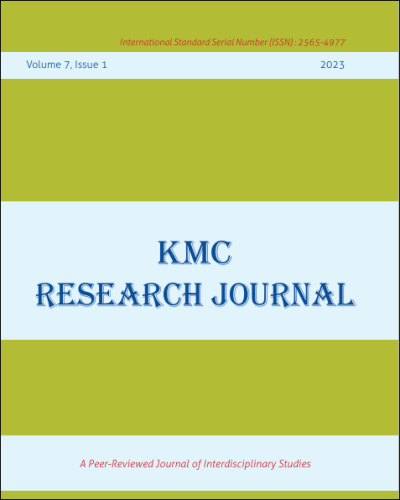Towards Equity and Inclusion: Analyzing Gender Equality and Social Inclusion in Nepal’s Budgeting Process – A Comprehensive Review
DOI:
https://doi.org/10.3126/kmcrj.v7i1.65076Keywords:
Gender Equality, Social Inclusion, Budgeting Process, Equity, NepalAbstract
Nepal, a diverse nation with a history of social disparities, is at the forefront of redefining its budgeting process to reflect a commitment to gender equality and social inclusion. In recent years, the country has recognized the imperative of addressing the entrenched inequalities that have marginalized women, ethnic minorities, and other marginalized groups.
The core of this shift lies in the incorporation of gender-responsive budgeting (GRB) and a social inclusion lens into the national budgetary framework. This process ensures that budget allocations are not only gender-sensitive but also promote social cohesion and uplift historically disadvantaged communities. Women's empowerment, access to education and healthcare, and economic inclusion of marginalized groups are now central themes in budget formulation.
This qualitative research involves an in-depth analysis of gender equality and social inclusion within Nepal's budgeting process. Through extensive literature review and content analysis of relevant documents, the study aims to provide a nuanced understanding of the challenges and opportunities in promoting equity in budget allocation and execution. This review article delves into the strategies, challenges, and successes of Nepal's journey towards gender equality and social inclusion in budgeting. It highlights the government's commitment to mainstreaming gender and social inclusion across ministries, the pivotal role of civil society in advocacy, and the need for data-driven decision-making to ensure targeted resource allocation.
Downloads
Downloads
Published
How to Cite
Issue
Section
License
© Koteshwor Multiple Campus




